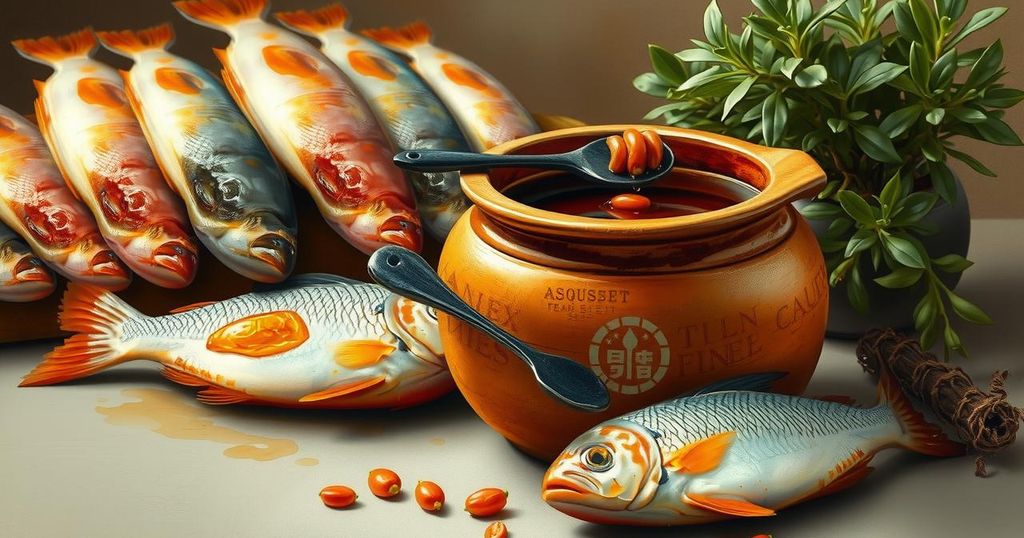Bui Van Phong’s family has upheld the tradition of fish sauce production in Vietnam, which is now under threat from climate change and overfishing. The Bui family emphasizes the cultural significance of their work, even as anchovy shortages could jeopardize this artisanal craft. Vietnam’s aspirations to leverage its fish sauce market further highlight the need for sustainable fishing practices.
Bui Van Phong made a pivotal decision 50 years ago, opting to preserve his family’s time-honored tradition of fish sauce production despite the Vietnam War’s end. Now, his son Bui Van Phu leads the business, recognizing the importance of their heritage. “It is also the historical value,” he states, reflecting on the cultural significance of their craft amidst contemporary challenges.
This heritage faces significant threats, particularly from climate change and overfishing. Warming ocean temperatures and declining oxygen levels hinder anchovy populations, essential for fish sauce. According to Renato Salvatteci, a fisheries researcher, “If we continue with this trend of deoxygenation, anchovies will not be OK with that. Each species has a limit.”
The implications of these environmental factors extend globally. Deteriorating marine ecosystems could lead to smaller, less nutritious fish and heightened fishing costs. Anchovies, critical to marine life and larger fish populations, are at risk, affecting the entire food chain and impacting fisheries dependent on them.
Overfishing further exacerbates these issues, especially in the contested South China Sea, contributing to management complexities. Despite increased fishing efforts, yields have plateaued, and a 2021 study warns that even minimal global warming would significantly reduce fish stocks in this crucial area.
Bui Van Phu actively participates in the artisanal crafting of fish sauce, a process that involves correctly catching and fermenting anchovies from January to March. Each production batch reflects the unique flavors imparted by regional sea salt and fermentation times. However, the decreasing availability of quality anchovies is forcing many local producers, including Phu, to reconsider their participation in this traditional industry.
This scenario threatens Vietnam’s ambitions to grow its fish sauce market, expected to rise significantly by 2032. As a leading exporter, Vietnam seeks to enhance food safety to meet international standards and showcase its culinary heritage. However, the tradition of fish sauce remains deeply embedded in Vietnamese culture, resonating with both expatriates and locals alike.
Phu notes, “Fish sauce to me is not just a condiment for cooking. But it is our craft, our culture, our tradition that need to be preserved, safeguarded and inherited.” The future of this tradition hinges on the sustainability of anchovy populations, emphasizing the urgent need for environmental protection.
In summary, Vietnam’s cherished fish sauce tradition faces imminent threats from climate change and overfishing. As the Bui family illustrates, preserving their heritage relies on the sustainability of anchovy populations, which are essential for producing this beloved condiment. The intertwined relationship between culture and environmental health highlights the pressing need for protective measures in the marine ecosystem to ensure the survival of this century-old craft.
Original Source: www.usnews.com






